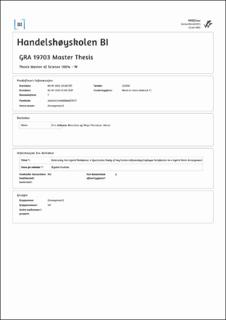| dc.description.abstract | The Covid-19 pandemic has significantly changed how many organizations operate, leading to the widespread adoption of a hybrid workplace model. This study seeks to examine the key factors that contribute to employee satisfaction in a hybrid work arrangement, wherein employees are expected to work from the office for three days a week and have the flexibility to work remotely for two days. Additionally, the study explores whether this arrangement influences employees to prefer working from home over working from the company office, which may impact employers' decision to offer such an arrangement.
The study was conducted through a qualitative approach, involving interviews with eight participants from a selected organization that offers this type of hybrid work arrangement, choosing participants with various years of work experience. Our findings highlight several key factors that influence employee satisfaction with the hybrid work model, including the flexibility to balance work and personal life, the ability to shape one's work, effective communication and collaboration, and the opportunity to maintain social connections at work. The findings are discussed in relation to existing literature on the hybrid work model, job crafting, self-determination theory, social connections, and belongingness.
In conclusion, this study provides valuable into the factors contributing to employee satisfaction in a hybrid work arrangement. The study’s findings enhance our understanding of the implications of hybrid work for employees and offer practical implications for organizations seeking to implement such models. | en_US |
